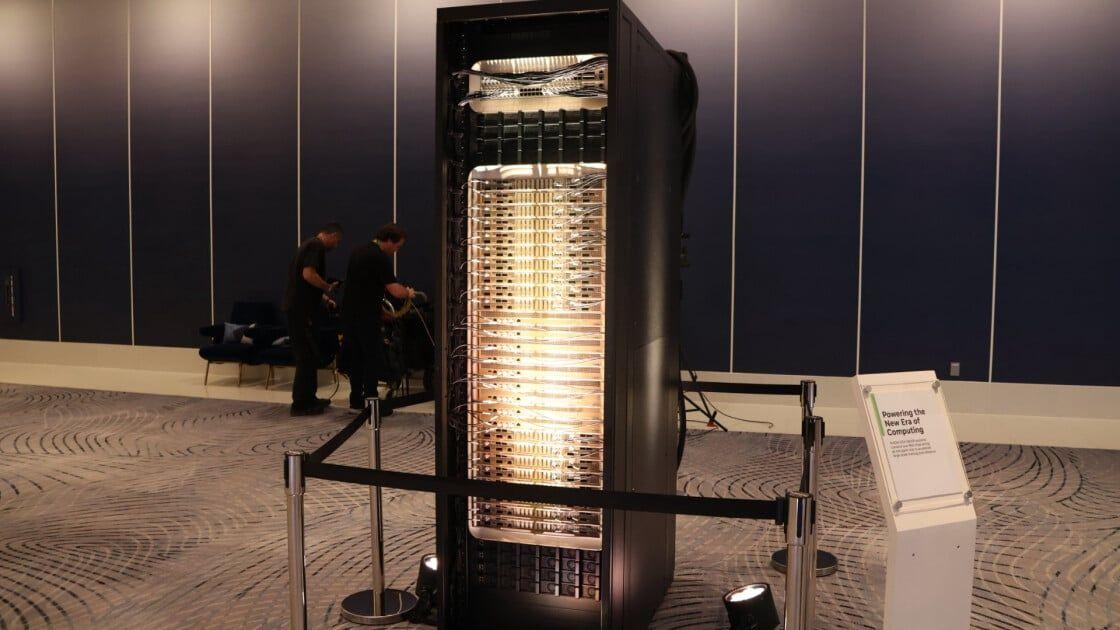NVIDIA's GPU-Accelerated Computing Advances Quantum Research for Drug Discovery
2 Sources
2 Sources
[1]
NVIDIA : Accelerated Computing Key to Yale's Quantum Research
A recently released joint research paper by Yale, Moderna and NVIDIA reviews how techniques from quantum machine learning (QML) may enhance drug discovery methods by better predicting molecular properties. Ultimately, this could lead to the more efficient generation of new pharmaceutical therapies. The review also emphasizes that the key tool for exploring these methods is GPU-accelerated simulation of quantum algorithms. The study focuses on how future quantum neural networks can use quantum computing to enhance existing AI techniques. Applied to the pharmaceutical industry, these advances offer researchers the ability to streamline complex tasks in drug discovery. Researching how such quantum neural networks impact real-world use cases like drug discovery requires intensive, large-scale simulations of future noiseless quantum processing units (QPUs). This is just one example of how, as quantum computing scales up, an increasing number of challenges are only approachable with GPU-accelerated supercomputing. The review article explores how NVIDIA's CUDA-Q quantum development platform provides a unique tool for running such multi-GPU accelerated simulations of QML workloads. The study also highlights CUDA-Q's ability to simulate multiple QPUs in parallel. This is a key ability for studying realistic large-scale devices, which, in this particular study, also allowed for the exploration of quantum machine learning tasks that batch training data. Many of the QML techniques covered by the review - such as hybrid quantum convolution neural networks - also require CUDA-Q's ability to write programs interweaving classical and quantum resources. The increased reliance on GPU supercomputing demonstrated in this work is the latest example of NVIDIA's growing involvement in developing useful quantum computers. NVIDIA plans to further highlight its role in the future of quantum computing at the SC24 conference, Nov. 17-22 in Atlanta.
[2]
Accelerated Computing Key to Quantum Research
New review paper from Moderna and Yale demonstrates speedups for key quantum algorithms using NVIDIA's CUDA-Q platform, paving the way to scale drug discovery research with accelerated quantum supercomputers. A recently released joint research paper by NVIDIA, Moderna and Yale reviews how techniques from quantum machine learning (QML) may enhance drug discovery methods by better predicting molecular properties. Ultimately, this could lead to the more efficient generation of new pharmaceutical therapies. The review also emphasizes that the key tool for exploring these methods is GPU-accelerated simulation of quantum algorithms. The study focuses on how future quantum neural networks can use quantum computing to enhance existing AI techniques. Applied to the pharmaceutical industry, these advances offer researchers the ability to streamline complex tasks in drug discovery. Researching how such quantum neural networks impact real-world use cases like drug discovery requires intensive, large-scale simulations of future noiseless quantum processing units (QPUs). This is just one example of how, as quantum computing scales up, an increasing number of challenges are only approachable with GPU-accelerated supercomputing. The review article explores how NVIDIA's CUDA-Q quantum development platform provides a unique tool for running such multi-GPU accelerated simulations of QML workloads. The study also highlights CUDA-Q's ability to simulate multiple QPUs in parallel. This is a key ability for studying realistic large-scale devices, which, in this particular study, also allowed for the exploration of quantum machine learning tasks that batch training data. Many of the QML techniques covered by the review -- such as hybrid quantum convolution neural networks -- also require CUDA-Q's ability to write programs interweaving classical and quantum resources. The increased reliance on GPU supercomputing demonstrated in this work is the latest example of NVIDIA's growing involvement in developing useful quantum computers. NVIDIA plans to further highlight its role in the future of quantum computing at the SC24 conference, Nov. 17-22 in Atlanta.
Share
Share
Copy Link
A joint research paper by Yale, Moderna, and NVIDIA explores how quantum machine learning techniques, powered by GPU-accelerated computing, could revolutionize drug discovery methods.

Quantum Machine Learning: A New Frontier in Drug Discovery
A groundbreaking joint research paper by Yale, Moderna, and NVIDIA has shed light on the potential of quantum machine learning (QML) to revolutionize drug discovery methods. The study explores how QML techniques could enhance the prediction of molecular properties, potentially leading to more efficient development of new pharmaceutical therapies
1
2
.The Role of GPU-Accelerated Computing
At the heart of this research is the critical role of GPU-accelerated computing in simulating quantum algorithms. As quantum computing scales up, an increasing number of challenges can only be approached using GPU-accelerated supercomputing. This technological advancement is key to exploring the potential of quantum neural networks in enhancing existing AI techniques
1
2
.NVIDIA's CUDA-Q: Powering Quantum Simulations
The review highlights NVIDIA's CUDA-Q quantum development platform as a unique tool for running multi-GPU accelerated simulations of QML workloads. CUDA-Q's capabilities include:
- Simulating multiple Quantum Processing Units (QPUs) in parallel
- Studying realistic large-scale devices
- Exploring quantum machine learning tasks that batch training data
- Writing programs that interweave classical and quantum resources
1
2
These features are crucial for researching how quantum neural networks can impact real-world applications like drug discovery, which requires intensive, large-scale simulations of future noiseless QPUs.
Implications for the Pharmaceutical Industry
The application of these advanced QML techniques to the pharmaceutical industry offers researchers the potential to streamline complex tasks in drug discovery. By better predicting molecular properties, this approach could significantly accelerate the process of developing new pharmaceutical therapies
1
2
.Related Stories
NVIDIA's Growing Role in Quantum Computing
This research demonstrates NVIDIA's increasing involvement in developing useful quantum computers. The company's GPU supercomputing capabilities are proving instrumental in advancing the field of quantum computing
1
2
.Future Developments
NVIDIA plans to further showcase its role in the future of quantum computing at the upcoming SC24 conference, scheduled for November 17-22 in Atlanta. This event is expected to highlight additional advancements and applications of GPU-accelerated computing in quantum research
1
2
.References
Summarized by
Navi
[1]
Related Stories
Taiwan's New AI Supercomputer to Boost Research in Quantum Computing and Climate Science
19 May 2025•Technology

Nvidia Launches Accelerated Quantum Research Center to Advance AI-Quantum Integration
19 Mar 2025•Technology

Nvidia and Google Quantum AI Collaborate to Accelerate Quantum Computing Development
19 Nov 2024•Technology

Recent Highlights
1
ByteDance Faces Hollywood Backlash After Seedance 2.0 Creates Unauthorized Celebrity Deepfakes
Technology

2
Microsoft AI chief predicts artificial intelligence will automate most white-collar jobs in 18 months
Business and Economy

3
Google reports state-sponsored hackers exploit Gemini AI across all stages of cyberattacks
Technology





